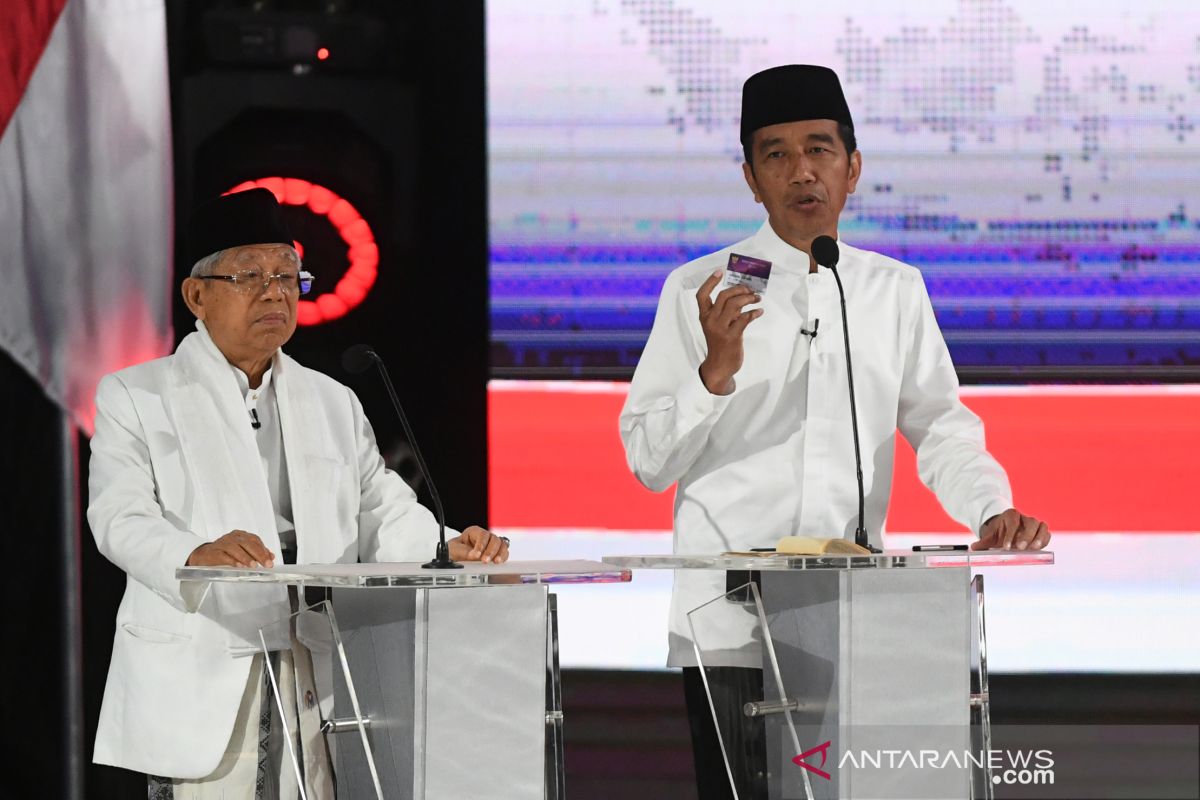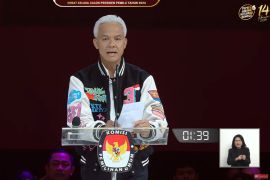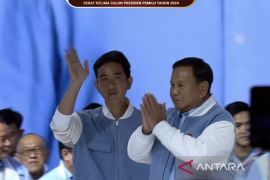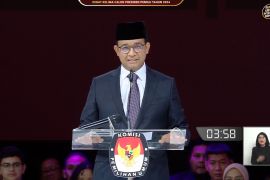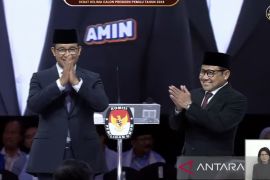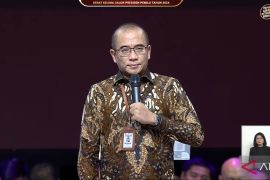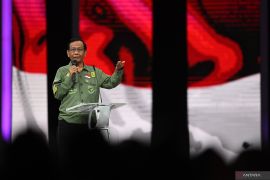“In terms of social welfare, we have the Indonesia Smart Card (KIP). We hope all children, especially those from poor families, can have access to higher education with this card,”Jakarta (ANTARA) - Presidential candidate pair number 01 Joko Widodo (Jokowi) and Ma’ruf Amin has prepared three card programs to promote the social welfare of Indonesians. The three cards include the Indonesia Smart Card (KIP), Pre-Employment Card and Affordable Staple Foods Card.
“In terms of social welfare, we have the Indonesia Smart Card (KIP). We hope all children, especially those from poor families, can have access to higher education with this card,” said Jokowi during the opening of the fifth presidential debate in Jakarta, Saturday evening.
He said that the Pre-Employment Card will be issued so that the government can organize training, both inside and outside the country for high school graduates and those who have been dismissed from their workplace (PHK).
“There will also be the Affordable Staple Foods Card that will allow women to buy staple foods at discounted prices, as we will be subsidizing some of them,” he said.
Previously, Joko Widodo said that the three cards that include Indonesia Smart Card (KIP), Pre-Employment Card and Affordable Staple Foods Card will be distributed to the deserving members of the public next year and will become effective soon after the distribution.
“At the moment, we are still in the process of counting and budgeting the program,” he said during a rally in Sukabumi district, West Java, on April 11.
Both presidential candidate pairs, number 01 Joko Widodo-Ma'ruf Amin and number 02 Prabowo Subianto-Sandiaga Uno attended the fifth debate held at Sultan hotel Jakarta, Saturday evening.
The debate revolves around economic and social welfare issues, finance and investment, and trade and industry.
It will be the last round of the series of debates leading up to the 2019 presidential election, wrapping up the seven-month campaign period.
The General Elections Commission held five presidential debates, covering a vast variety of national issues, including law, human rights, corruption and terrorism for the first round.
The second round of debates was attended only by vice presidential candidates Ma'ruf Amin and Sandiaga Uno, bearing the theme energy, infrastructure, natural resources, food stock, and environment.
Education, health, manpower issues and social and culture were the themes in the third debate, and the fourth one revolved around governmental ideology, security, and international relations.
Translator: Azizah Fitriyanti, Aria Cindya
Editor: Suharto
Copyright © ANTARA 2019
